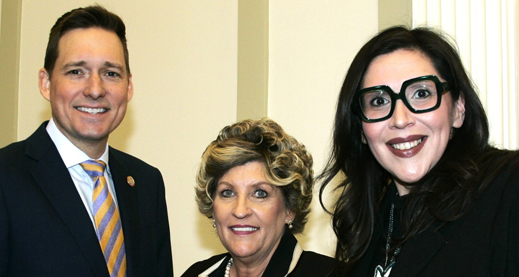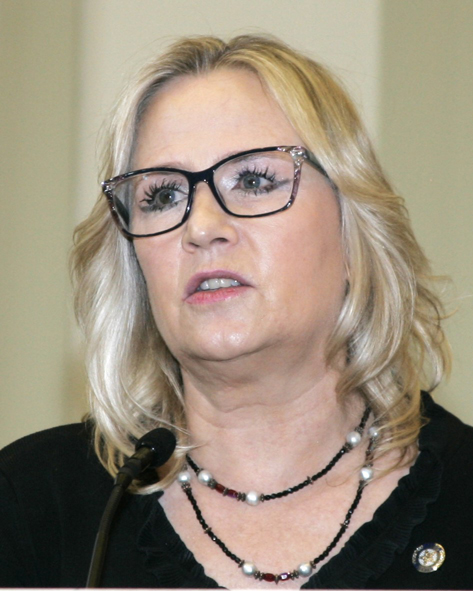

Story by Darl Devault, Contributing Editor
In late February, more than 300 senior citizens gathered at the Oklahoma State Capitol for Senior Day, an annual event where seniors can meet their elected representatives and discuss issues affecting the aging population in the state. This event is a crucial platform for seniors to have their voices heard, and this year’s gathering was no exception.
Lt. Gov. Matt Pinnell was among the elected representatives who addressed the seniors gathered in the House Chambers. He emphasized the need for quality opportunities for seniors to socialize and pointed to Oklahoma’s many state parks as the ideal place. Pinnell’s comments highlight the importance of promoting social connections and community engagement among seniors, which can significantly benefit their health and well-being.
Additionally, Pinnell spoke about the unique nature of Oklahoma’s tourism industry, which he described as more organic than many other states. He cited Oklahoma’s rich history and heritage, including its Native American culture and the famous Chisholm Trail and Route 66, as major tourist draws. Pinnell’s remarks underscore the importance of promoting and preserving Oklahoma’s cultural heritage for tourism and the benefit of the state’s residents, including seniors.
The Southern Oklahoma Development Association Ombudsman Supervisor and Systems Advocate Rebekah Williams served as the emcee for the House Chambers proceedings in her duties with its Area Agency on Aging. Several times in an hour and a half of addressing senior needs, she expressed the importance of getting back to the important agenda since COVID-19 had interrupted the annual event for three years. “What an amazing sight to see beautiful Oklahoma seniors in the House Chambers, Williams said. “It was wonderful for all of us to be together again, a true blessing to my soul.”
Another elected representative who addressed the seniors at Senior Day was Speaker of the House Rep. Charles McCall, R-Atoka, who is the longest-serving speaker in state history, now in his fourth term. He spoke about current bills being discussed in the state House and Senate and other issues facing Oklahoma. McCall’s comments highlight the significance of the legislative process in addressing the concerns of seniors and other constituents.
Rep. Nicole Miller, R-Edmond, discussed two bills she was working to have enacted into law related to elder care. The first, House Bill 2753, would create the Vulnerable Adult Abuse, Neglect and Exploitation Registry, a searchable database requested by the Oklahoma Silver-Haired Legislature. This registry would include the names and identifiable information of people convicted of abuse, neglect, or exploitation of a vulnerable adult. Miller noted that the bill was supported by the Oklahoma Alliance on Aging, the Oklahoma State Council on Aging, and the American Association of Retired Persons (AARP) Oklahoma.
Miller also discussed House Bill 2747, which would create the Office of Alzheimer’s Disease and Related Dementia Resource Coordination within the State Department of Health. This office would provide statewide coordination, service system development, and information on education, support, and other available services for people with Alzheimer’s or loved ones with the disease. Miller worked with the Alzheimer’s Association to create the bill, which she said marks the start of implementing the State Plan on Alzheimer’s created in 2008.
HB2747 would also establish the Alzheimer’s Disease & Related Dementia Research Fund and the Dementia Caregiver Support Group & Education Program Development Fund to distribute grants as approved by awards committees.
“Oklahoma has had a state plan on Alzheimer’s for 15 years, and while progress has been made to address the programmatic and policy needs, there’s more work to be done,” Miller said. “Government must protect our vulnerable citizens, and sadly that sometimes includes our seniors who are at risk of being taken advantage of or suffer from memory loss.”
Newly appointed in January, Deborah Shropshire, M.D., Oklahoma Department of Human Services’ executive director addressed the department’s State Plan on Aging. As the first woman OKDHS director, she told the seniors of her commitment to ensuring senior citizens can age well in Oklahoma.
Several speakers said senior issues have been a significant focal point during the early stages of the legislative session, and recent bills regarding seniors have been focused on the quality of care in senior centers. The new legislation is trying to ensure that as many seniors as possible are proud of the facilities they live in.
“It was important that seniors visited their legislators in their offices and met their staff to make specific recommendations for improving services at long-term care facilities,” said Trish Emig, president of the Oklahoma Silver Haired Legislature Alumni Association. “This included nursing homes, assisted living and similar adult care homes and seeking more funding and support for other vital services for Oklahoma seniors.”














